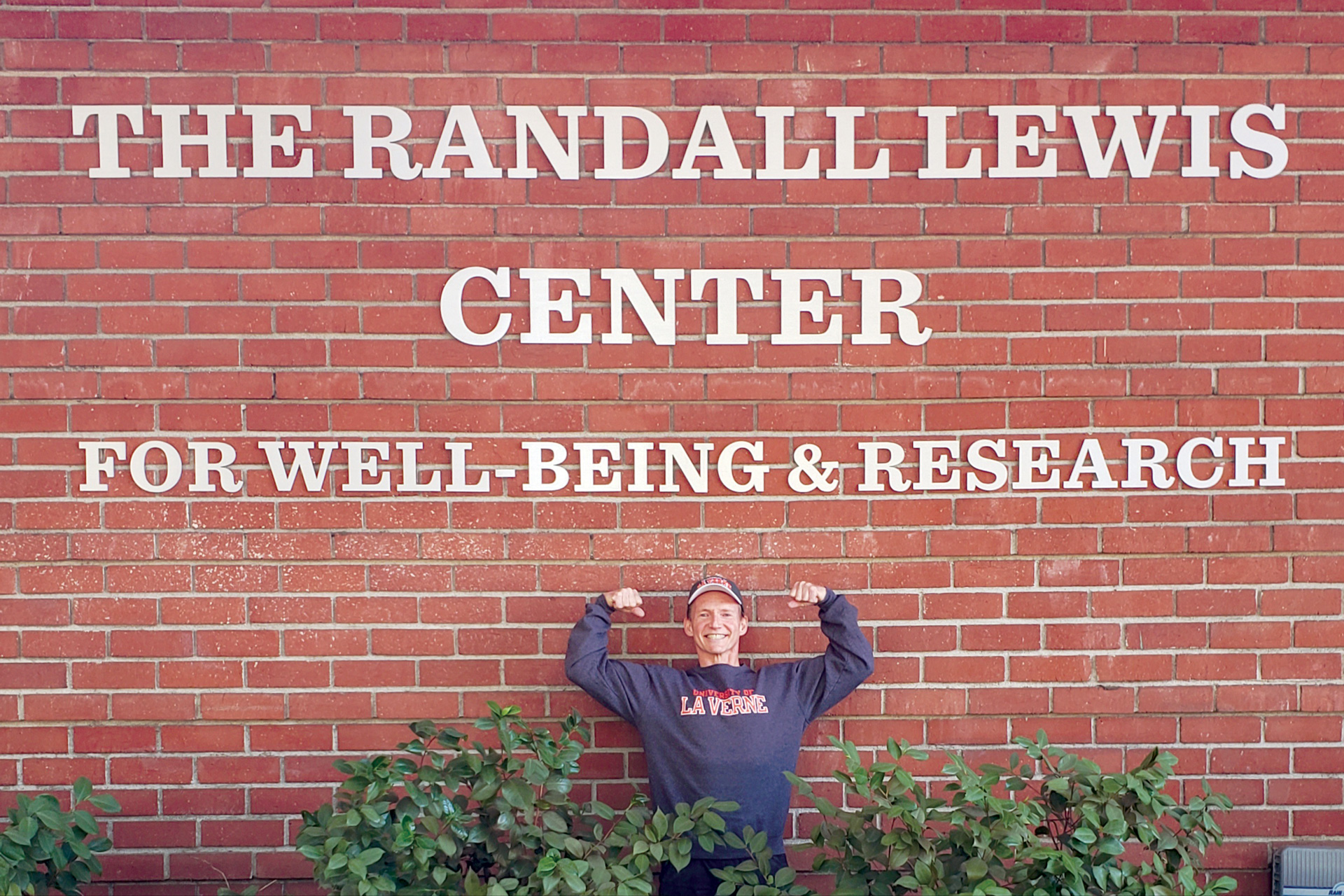Finding His Strengths
Professor Loren Dyck pursues well-being through his passions as an award-winning bodybuilder, researcher, and all-around academician.
June 6, 2022
Management professor. Respected wellness scholar. Master bodybuilder. Loren Dyck seems to be living multiple, parallel lives.
Dyck has pondered “what drives sustained desired change?” for decades: at the personal level, as a lifelong bodybuilder in pursuit of the perfect physique. And at the professional level, as a social scientist investigating how long-term change occurs in individuals and couples, within teams, inside large organizations, and across societies.
For the past two years, Dyck has been a faculty research fellow with the Randall Lewis Center for Well-Being and Research, gathering data on how wellness participation produces changes in long-term behaviors.
But Dyck never expected to be an academic. Born and raised in Winnipeg, Manitoba, he comes from working-class Dutch Canadian roots.
“With me, growing up, it was all about sports,” Dyck said. Especially hockey and volleyball. He took up weight-training and bodybuilding to gain strength and speed on the ice.
With his father’s encouragement, Dyck enrolled at the University of Manitoba, majoring in finance and human resources.
After graduating with a Bachelor of Commerce degree, he embarked on a 15-year career with the Canadian government.
By 1996, Dyck had done “pretty much all there is to do in human resources,” so he pursued dual master’s degrees in business administration and human resource management at Hawai’i Pacific University. While there, he opened a consulting business in leadership development and executive coaching. Dyck had a blast, but he longed to conduct original research.
Dyck moved to Cleveland in 1999 to study organizational behavior at Case Western Reserve University. He was 50 when he finished his PhD and accepted a tenure-track job at University of La Verne teaching human resource management and organizational behavior.
For years, his career in government, consulting, and academia seemed to run parallel to his passion for fitness and bodybuilding. As a professor, he integrates the strands whenever possible—like mixing tai chi sessions into his graduate seminars.
With the Lewis Center research fellowship, everything came together.
In collaboration with colleague William Luse, their ongoing research has already yielded valuable insights. Their findings indicate University of La Verne students who participated in wellness exercises such as aerobics, strength building, and stretching also expressed a readiness to change or improve their health—for example, practicing good eating habits and handling stress well. Concern about COVID-19, the researchers found, strengthened the positive relationship between wellness participation and health behavior change.
Dyck’s advice to students and colleagues: “Do something. Get busy, get active. I live by and firmly believe that exercise is medicine.”
An inspirational message hangs over Dyck’s squat rack in the converted garage-gym of his Rialto home. It reads: “You can throw in the towel, or you can use it to wipe the sweat off your face.”
Dyck takes that philosophy beyond the gym, into his teaching and research. And the university community is better for it.
